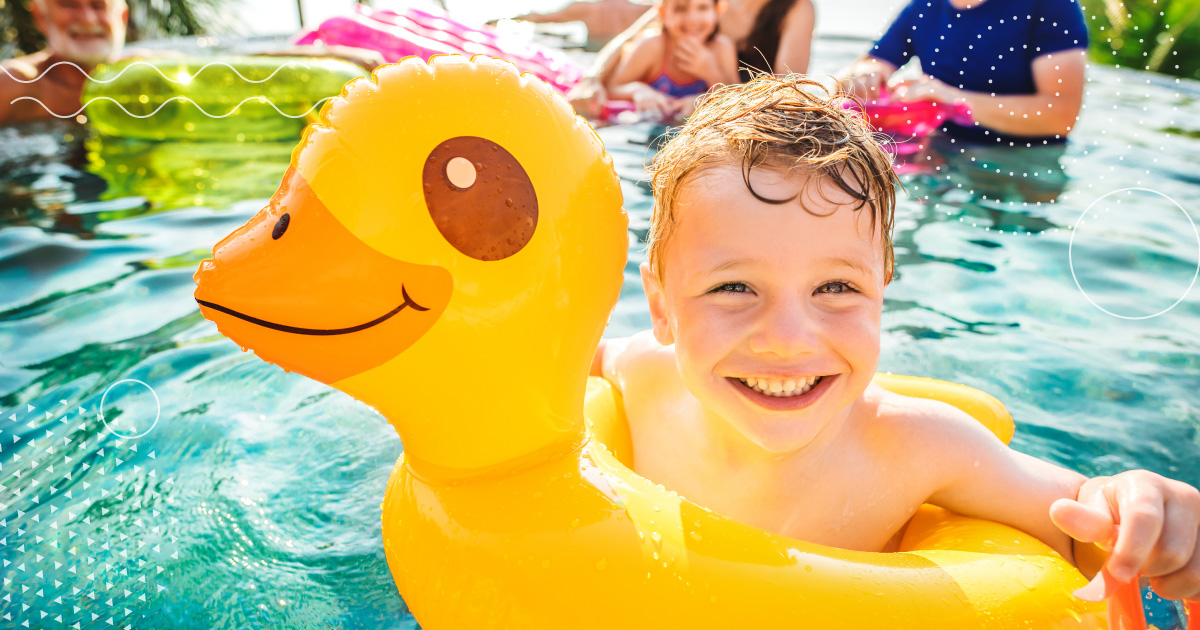Understanding Sun Poisoning: How to Protect Your Family from Severe Sunburn

Have you ever spent a day at the beach only to feel awful the next day? You might have experienced sun poisoning, a severe form of sunburn that can leave you feeling very sick. This article will help you understand what is sun poisoning, its symptoms, who is at risk, how to treat it, and tips to protect yourself and your family.
What is Sun Poisoning?
Sun poisoning is more than just a bad sunburn. It happens when your skin gets too much ultraviolet (UV) radiation from the sun. While a regular sunburn can be painful, sun poisoning goes a step further and can make you feel sick, almost like having the flu. It can also cause your skin to blister and swell. Think of it as a warning from your body that you’ve had too much sun exposure.
Symptoms of Sun Poisoning
Sunburn occurs when someone is exposed to too much ultraviolet (UV) light, whether from the sun or artificial sources like tanning beds. Mild to moderate sunburn symptoms include redness, pain, and skin that feels hot to the touch, usually fading after three days.
Sun poisoning, however, is more severe and lasts longer. Here are the symptoms to watch for:
- Severe redness and pain – The skin becomes intensely red and painful.
- Blisters – These indicate a second-degree burn and can lead to severe complications.
- Swelling – Especially in the face and hands.
- Headache, nausea, and vomiting – These are common symptoms of severe sun exposure.
- Fever and chills – These are signs that the body is reacting strongly to the sunburn.
- Dehydration – Blisters can cause significant fluid and electrolyte loss.
- Skin infections – Blisters can become infected if not properly treated.
- Persistent skin changes – Sun-damaged skin can continue to show changes even after the burn heals.
These symptoms indicate that sun poisoning is not just a simple sunburn but a serious condition that needs attention.
Who is at Risk for Sun Poisoning?
Sun poisoning can affect anyone, but some people are more vulnerable. Here’s who should be extra cautious:
- Babies and children – Young ones have more sensitive skin, making them more susceptible to severe sunburns and sun poisoning.
- Fair skin – Individuals with fair skin, light-colored eyes, and light hair are at higher risk.
- People with skin conditions – Certain skin conditions can make your skin more sensitive to the sun.
- Certain medications – Some medications can increase your risk of sunburn, including certain antibiotics, pain relievers, blood pressure medications, and herbal supplements like St. John’s wort.
- High altitudes and reflective surfaces – Being at high altitudes or near water, snow, or sand can intensify sun exposure.
- Previous sunburns – A history of sunburns can make you more prone to sun poisoning.
Home Treatment for Sun Poisoning
If you suspect you have sun poisoning, here are some steps you can take at home to feel better.
- Get out of the sun – Immediately move indoors or find shade to prevent further damage.
- Cool down your skin – Soothe your skin by applying cool compresses or taking a refreshing bath.
- Hydrate – Drink plenty of water to help rehydrate your body.
- Over-the-counter pain relief – Medications like ibuprofen or aspirin can help reduce pain and inflammation.
- Aloe vera – Applying aloe vera gel can provide relief to your skin.
- Moisturize – Use a gentle, unscented moisturizer to keep your skin hydrated.
When to See a Doctor for Sun Poisoning
Sometimes, sun poisoning needs more than just home remedies. It’s important to know when to seek medical help.
- Severe blisters – If you have large blisters that cover a significant portion of your body.
- High fever – A fever over 103°F needs medical attention.
- Confusion or fainting – If you’re feeling confused or fainting, it’s important to see a doctor right away.
- Signs of infection – If your blisters become infected, you may notice increased pain, swelling, or pus.
Tips for Protecting Yourself Against Sun Poisoning
Prevention is always better than cure. Here are some tips to protect yourself and your family from sun poisoning.
- Use sunscreen – Apply a broad-spectrum sunscreen with a minimum SPF of 30. Reapply every 2 hours, and after sweating or swimming.
- Wear protective clothing – Shield your eyes and skin with long-sleeved shirts, sunglasses, and wide-brimmed hats.
- Find shade – Seek shade, especially during the peak sun hours between 10 AM and 4 PM.
- Stay hydrated – Drink enough water throughout the day to maintain proper hydration.
- Take extra care with medications – If your medication makes you more sensitive to the sun, be sure to take additional precautions.
- Monitor the UV index – Check the UV index daily and adjust your outdoor activities as needed.
Stay Informed and Be Safe
Understanding and preventing sun poisoning is essential for enjoying sunny days safely. Remember, sun poisoning is more than just a sunburn, and it can be serious. By taking preventive measures and knowing when to seek help, you can protect yourself and your family. If you need more information on what is sun poisoning, sun safety, or other health topics, visit our website for helpful resources and tips. Stay safe and enjoy the sun responsibly!
Sources:
“Is It Sunburn or Sun Poisoning?” Lifespan, https://www.lifespan.org/lifespan-living/it-sunburn-or-sun-poisoning
“What You Should Know About Sun Poisoning Symptoms,” Cleveland Clinic, https://health.clevelandclinic.org/do-you-have-sun-poisoning-4-less-known-facts
“Sun Poisoning: What You Need to Know,” Samaritan Medical Care Center, https://samaritanmedicalcare.com/sun-poisoning-what-you-need-to-know/
“Sun Poisoning Dangers: Symptoms, Treatment and Prevention,” UPMC Health Beat, https://share.upmc.com/2014/06/dangers-sun-poisoning/


